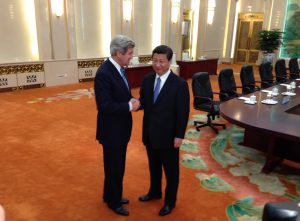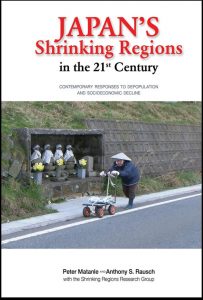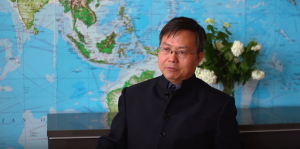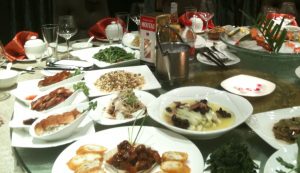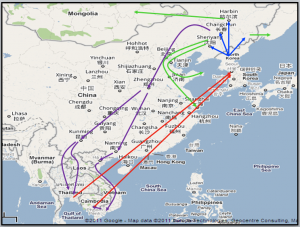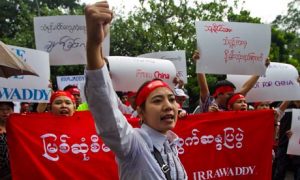Is the Pacific Big Enough for All of Us?: China’s Shifting Role vis-à-vis North Korea and U.S.-China Strategic Cooperation
Memo #242 By Key-young Son – skyquick [at] hotmail.com A fundamental shift is taking place in China’s idea of its leadership role in Northeast Asia that may have profound implications for the region and its strategic relations with the United States. As a treaty ally of North Korea, China has long been known as a […]
The “Exotic” Minority in Western China: Why Domestic Ethnic Tourism in China May be Doing More Harm than Good
Memo #241 By Brianna Botchwey – blsb2 [at] cam.ac.uk In western China, domestic tourism is on the rise and ethnic tourism is a central but troubling part of this industry. While tourism may provide poorer, minority areas with income, the increase in ethnic tourism is a problematic development for the future of relations between China’s Han […]
Japan as Test Case for a New Age: The Importance of Understanding Local Places
Memo #240 By Anthony S. Rausch – asrausch [at] cc.hirosaki-u.ac.jp Japan faces an aging population and rural out-migration, a sluggish economy and drastic divisions between urban-rural economies, a critical techno-environmental catastrophe and vital debates regarding energy policy. A bleak set of problems, but also a fair representation of some of the issues the world is […]
Best Practices Guidelines: Chinese Energy Investment In Canada
Xu Xiaojie, Director of World Energy at the Institute of World Economics and Politics at the Chinese Academy of Social Sciences discusses the relationship between Chinese and Canadian energy companies, and the motivations behind Chinese investment in Canada.
Unhealthy Rituals: How to Address the Occupational Health Hazards of Doing Business in China
As China’s economy has grown, so has its burden of disease. Excessive practices of smoking, drinking and eating, along with a growing commercial sex industry, are leading to epidemics of cancer, diabetes, stroke, other cardio-vascular diseases and sexually transmitted infections. Something must be done about this before it threatens China’s economic growth, but the response must fit the problem.
Hong Kong’s Untenable Refugee Policies
Recent demonstrations protesting Hong Kong’s zero-recognition refugee policy in April 2013 brought renewed attention to a crisis situation regarding asylum seekers in the territory. Since 2004, 12,300 asylum seekers have filed claims with Hong Kong’s Immigration Department asking to be allowed to remain on the grounds that they face torture if returned to their countries, but only one has ever been granted refugee status. Hong Kong’s refugee recognition rates are well below the international average of 13.8% reported by the United Nations, and the 20% to 38% recognition rate in liberal democracies.
China in Global Governance (Video Interview with Professor Gerald Chan)
Memo #230 Featuring Gerald Chan – gerald.chan [at] auckland.ac.nz Professor Chan, of the University of Auckland, discusses his research on China in global governance. He describes Chinese involvement in world affairs as a new phenomenon, which began with Chinese reforms in the 1980s. This period saw increased interaction between China and other states, and between […]
The Complexity of North Korean Migration
Just imagine you’re a North Korean living in a small village. You have no one to compare your condition with. One day, you hear about people who’ve fled to China who are now well off. Some even go to South Korea, a place you know about from smuggled DVDs. You know that if caught, you could be sent to prison and beaten by guards. If successful, such migration promises a better life.
Chinese Companies Moving into the World Market… Responsibly?
Two decades after it began opening up to the world, China devised the “Going Out” strategy in the late 1990s to encourage Chinese companies to operate on a global scale. China’s outbound direct investment (ODI) has surged, reaching a staggering total of US$68 billion in 2010—over five percent of global FDI flows. Chinese ODI has targeted all sectors of the world economy, with a marked presence in the resource and infrastructure sectors, and in developing regions like Africa and Southeast Asia where bilateral and multilateral partnerships with the People’s Republic are deepening.
Urban Beekeeping: a new buzz in Asian cities
We need bees, but bees are dying. This is a global problem, but some Asian cities are finding novel solutions in urban beekeeping.
The humble Apis Mellifera punches well above its tenth of a gram weight. Through transferring pollen, bees are essential to 80% of the food we consume. Furthermore, the economic input from bees is substantial, with pollinated crops accounting for $1 trillion of the yearly agricultural produce sold.
